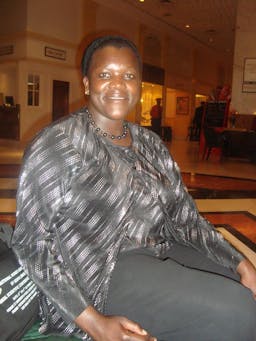NO ILLUSIONS, FEAR, HALLUCINATIONS: THE MENTALLY ILL DESERVE LOVE AND CARE
Jan 21, 2015
Story
Every market place has its own mad men! A common phrase but hardly do we think of the gravity it carries. Mental illness is a dual burden to the community and individual, because of its complexity and the stigma surrounding it. Many people would not like to be associated with a relative who has mental disorder. It cuts ones chances of marriage, work and socialization.
A feature story was once shown on Kenyan television of a frail woman (now looking like a baby) tied to a bed and locked in a dark room for years in one of the sprawling slums in the city.
Villagers within the slum had for a long time held suspicion of a woman who would discretely open the side door very early in the morning and late in the evening. She never let anyone into that room .This had been going on for more than 2-5 yrs with bizarre noises emanated from that room. Some had speculated she was a witch. Mental illness in many African communities is viewed a bad eye’s misfortune, either brought by parents or clan. It called for attention from the village healer or seer who would perform rituals to spell out the curse. Many a times this remedy failed and the victim would be condemned to isolation and ridicule from the entire community.
So one bright morning when the lady had left for her business premises, the villagers broke into the discreet room and found a frail, wasted lady of about 25yrs who was tied to a bed, with crouched knees and the blank stare typical of the mentally ill. It is important to realize that the isolation of this patient is a reality of the first assylums which were built like prisons to confine individuals away from the ‘normal society’. The World Health Organization has raised deep concerns about the increasing number of mentally ill and in its effort low income countries have been put in the limelight to reconsider a community approach towards mental health care. Could this have saved the young girl?
Upon arrival of the mother at home, the police demanded that she report to the station for interrogation. An utterly frightened lady, with shock registered over her face had this to say, “This is not my undoing, I was protecting my daughter from being injured or even raped by people in the village”.
Historically mental illness has held complex gender issues which reflected societal biases against women. During the nineteenth century the male-held belief about women role led to the kind of psychiatry practices that are still influential today. At one point in history women outnumbered men in the asylums and had been labeled as hysterical, the word hysterus coming from Greek word womb. During this period a common treatment was mutilating sexual organs in the belief that madness in women arose from sexual arousal. The partrichial system towards mental health made women ascribe to the ‘ideal societal norms’ that a mother is a carer, child rearing, and only has herself to blame when family fails, hence her value being questioned.
Providing care for the mentally ill present challenges to a constrained health workforce. A shortage of psychiatric nurses and doctors has led to lack of early diagnosis and treatment. In the absence of treatment options, the mentally ill may be shunned or withheld in mental institutions. The pain of having a mentally ill daughter addresses the need to reconsider a community model approach and the special reproductive health needs. Coping with pregnancy related issues,contraceptives and who consents for this carries dogma into the kind of care needed for mentally ill women.
The World Mental Health Celebrations for 2012 is a turning pointing in redefining the community approach to address the stigma. A community based approach to mental health care is the best practice. Mental Health Chapter of Nurses in Kenya has a mission to reach out to people through health education in diagnosis, early treatment and family support networks other than institutional mental health care. This preparation is ongoing ahead of the big global event.Mental Health care is needed now more than ever.
This article is part of a writing assignment for Voices of Our Future, a program of World Pulse that provides rigorous new media and citizen journalism training for grassroots women leaders. World Pulse lifts and unites the voices of women from some of the most unheard regions of the world.
Further Reading:
www.who.int/mental health day/2011/en
Thompson.T(2000) Mental Health and Disorder ,3rd Ed,Baillere Tindall




